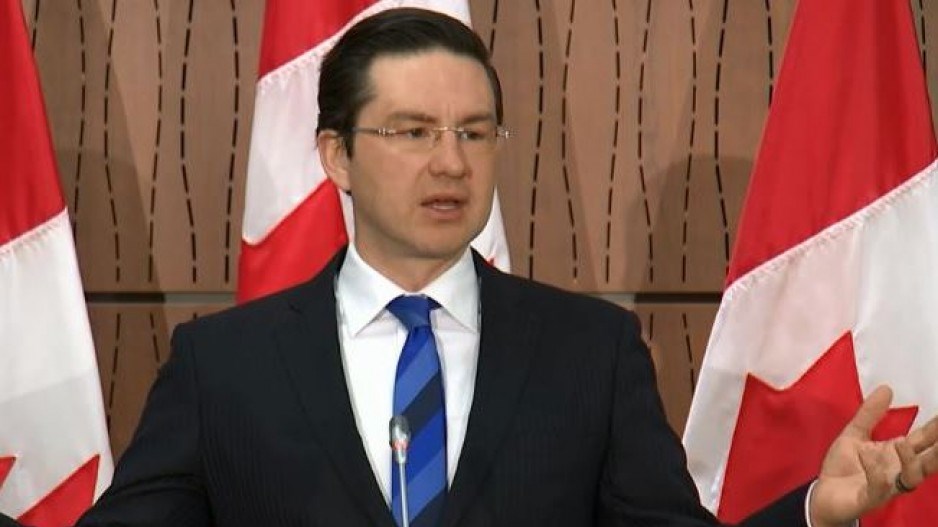His party is riding high in the polls and his political opponents continue to stumble and flail, and yet federal Conservative Party leader Pierre Poilievre apparently thinks it is necessary to change his image.
So far it is a work in progress, with some decidedly mixed messages.
He has shed his eyeglasses and has opted, for the summer anyways, for a more leisurely look when it comes to clothing.
His latest ads and videos emphasis family values and feature his wife, Anaida, providing the narration over warm, soft-focus shots of them playing with their children at home.
One video shows Poilievre outside his father’s former Calgary apartment building, where he lived while he went to university there. He points to a nearby rapid transit station, where he took the train to class every day.
He uses the ad to outline a policy that would require housing densification around transit stations. It’s the kind of policy that other parties will likely adopt in some way or another in the years ahead because it makes sense.
The whole approach is designed to soften Poilievre’s image, which is currently that of a partisan, elbows-up attack dog who lays every problem in life directly at Prime Minister Justin Trudeau’s feet.
Frankly, I think the whole package appears to be effective. It certainly casts the career politician in a warmer light, one that will likely improve his standing somewhat with women voters, who tend to shy away from brash, overly negative male politicians.
And yet Poilievre does not seem able to shed himself completely of some of the things that necessitated the image makeover in the first place.
For example, his speeches and his party’s communications strategy continue to embrace the language of mainstream conspiracy theories.
A Canadian Press story last week documented Poilievre’s continued efforts to cast the World Economic Forum as a dark, insidious organization that is bent on secretly controlling pretty much everything.
According to the CP story, the Conservative leader has given speeches across the country this summer in which he promises that none of his cabinet ministers will attend the international organization’s conferences (despite the fact he was part of the Stephen Harper government that sent ministers every year to the WEF’s main conference in Davos, Switzerland).
“It’s far past time we rejected the globalist Davos elites and bring home the common sense of the common people,” he wrote in a recent party fundraising email.
Poilievre also continues to raise the spectre of a “mandatory digital ID” being foisted upon the country by the ruling Liberals, even though such a notion — tied to a conspiracy theory — was debunked some time ago.
It is entirely possible that Poilievre continues to coddle their conspiracy theorists because they remain an important part of his party’s electoral bases.
But at some point, if he wants to take a leap into majority government territory — and several polls suggest he is close to achieving just that, at least for now — he must shed the fringe elements and start to “fish where the fish are,” as former prime minister Brian Mulroney advised him.
The rebranding exercise can ultimately be a success if it is genuine. But clinging to conspiracy theory language — words like “globalist elites” and even “gatekeepers” — does little to make any rebranding seem like the real thing.
Keith Baldrey is chief political reporter for Global BC.



.jpg;w=120;h=80;mode=crop)

